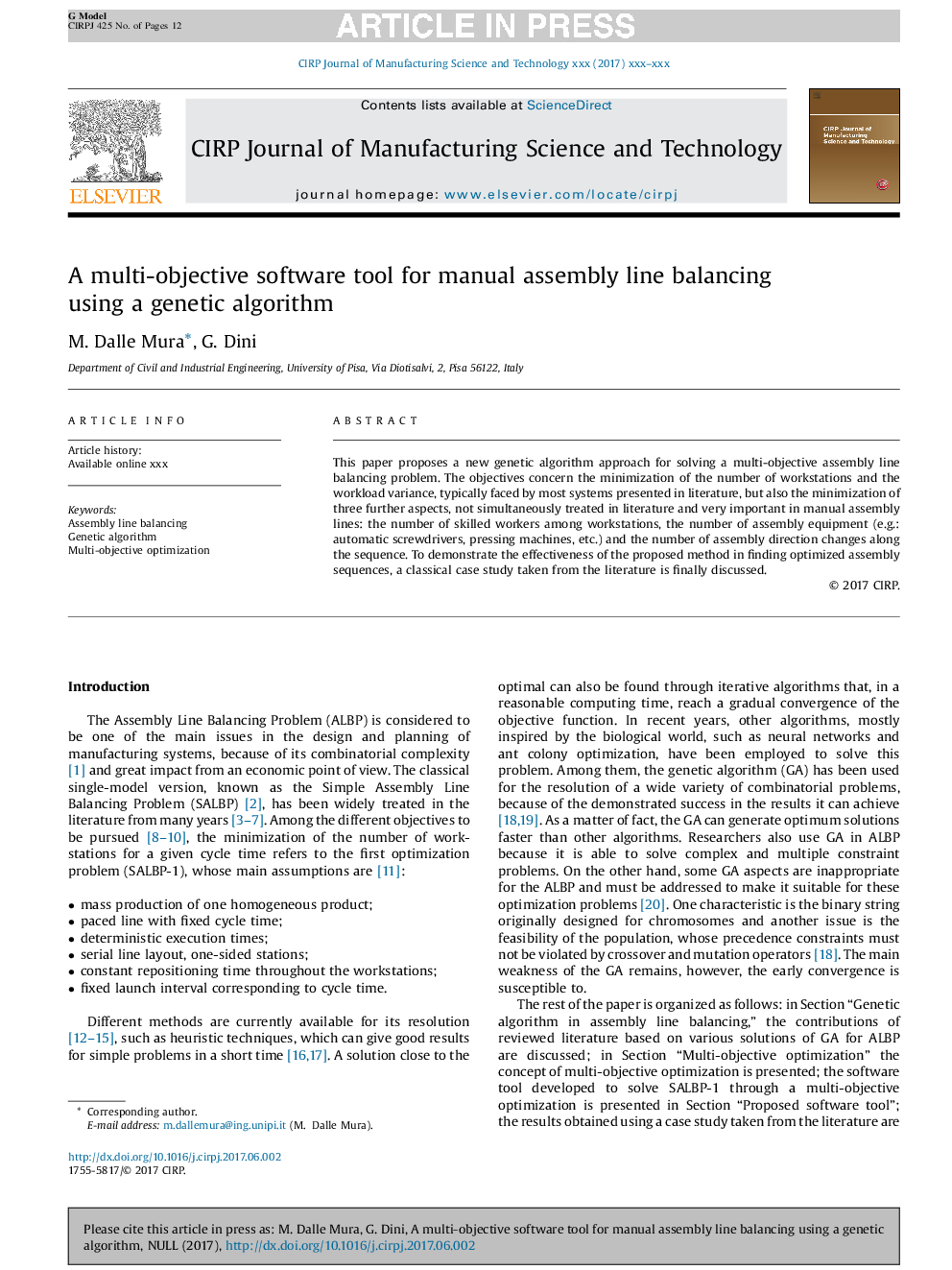| Article ID | Journal | Published Year | Pages | File Type |
|---|---|---|---|---|
| 8038894 | CIRP Journal of Manufacturing Science and Technology | 2017 | 12 Pages |
Abstract
This paper proposes a new genetic algorithm approach for solving a multi-objective assembly line balancing problem. The objectives concern the minimization of the number of workstations and the workload variance, typically faced by most systems presented in literature, but also the minimization of three further aspects, not simultaneously treated in literature and very important in manual assembly lines: the number of skilled workers among workstations, the number of assembly equipment (e.g.: automatic screwdrivers, pressing machines, etc.) and the number of assembly direction changes along the sequence. To demonstrate the effectiveness of the proposed method in finding optimized assembly sequences, a classical case study taken from the literature is finally discussed.
Related Topics
Physical Sciences and Engineering
Engineering
Industrial and Manufacturing Engineering
Authors
M. Dalle Mura, G. Dini,
